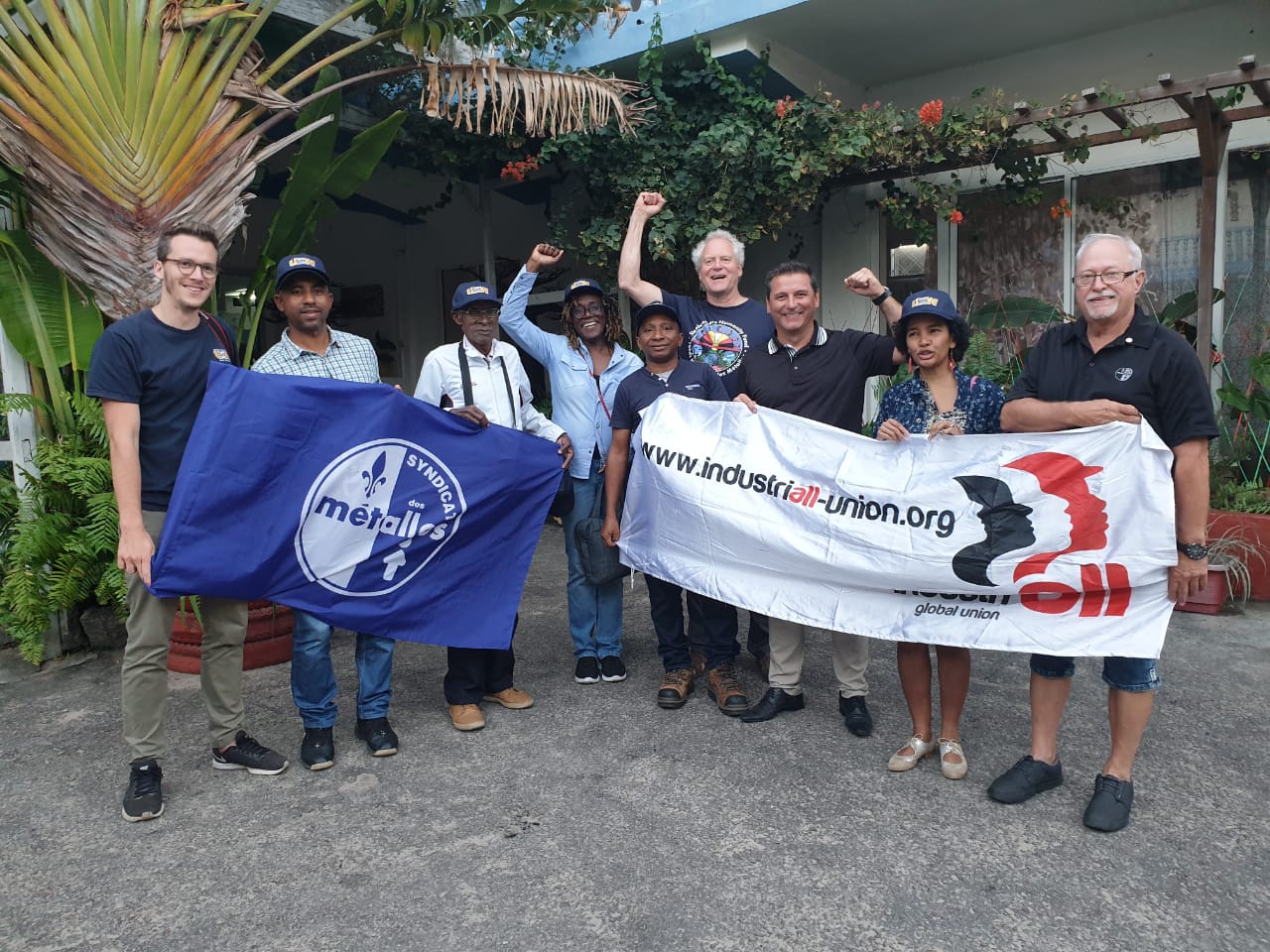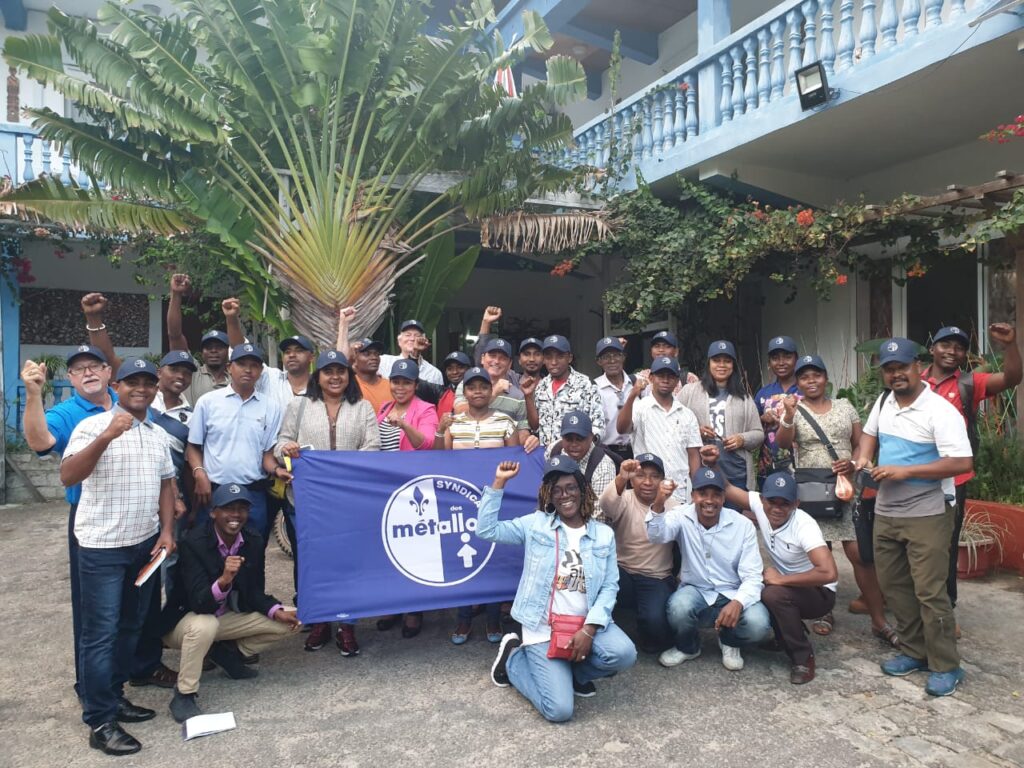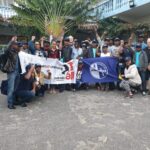Read this article in:
English
8 August, 2019Collective bargaining is one of the ways through which trade unions build solidarity, respect, trust, better communication, and consensus amongst workers. However, collective bargaining negotiations are complex, with challenges that may not be immediately apparent.
These are the issues that were discussed at a two-day workshop held on 2-3 August in Fort Dauphin, organized by the United Steelworkers (USW) from Canada and IndustriALL Global Union with support from the Steelworkers Humanity Fund (SHF). The workshop fleshed out on what needs to be done by a union to be effective in collective bargaining.
Attended by 26 participants, mostly worker representatives and shop stewards from IndustriALL affiliates Sendika Kristanina Malagasy (Sekrima) and Syndicalisme et Vie des Societes (SVS) with facilitators from USW and IndustriALL, the workshop showed that unions from different continents can work together and exchange learning and knowledge sharing of strategies on collective bargaining.
In the workshop, participants took lessons from the recently concluded negotiations with Rio Tinto's QMM subsidiary and recognized the critical importance of greater communication and engagement with the union members and workers in order to address workers’ needs. This was highlighted as key to achieving stronger collective agreements in the future.

Denis Trottier and Guy Gaudette, the USW trainers, shared their experiences on the importance of preparing for negotiations with employers.
“There is need to keep workers updated with information to build support and solidarity in making sure that in the event that the negotiations fail, the workers should decide on the next steps.”
Paule France Ndessomin, IndustriALL regional secretary for Sub Saharan Africa said:
“We are working to bring together our affiliates SVS and Sekrima to work together on collective bargaining strategies. When unions are united, they stand a better chance in negotiations with the employer.”
As part of the project to build union solidarity between the SVS and Sekrima, the SHF will support a shared office for the two unions. The office will receive workers’ grievances and identify workers’ priorities on which the unions can build consensus. From this a list of demands will be made for the next round of negotiations.
The IndustriALL union building project will also contribute to this initiative by supporting organizing drives for both unions.


